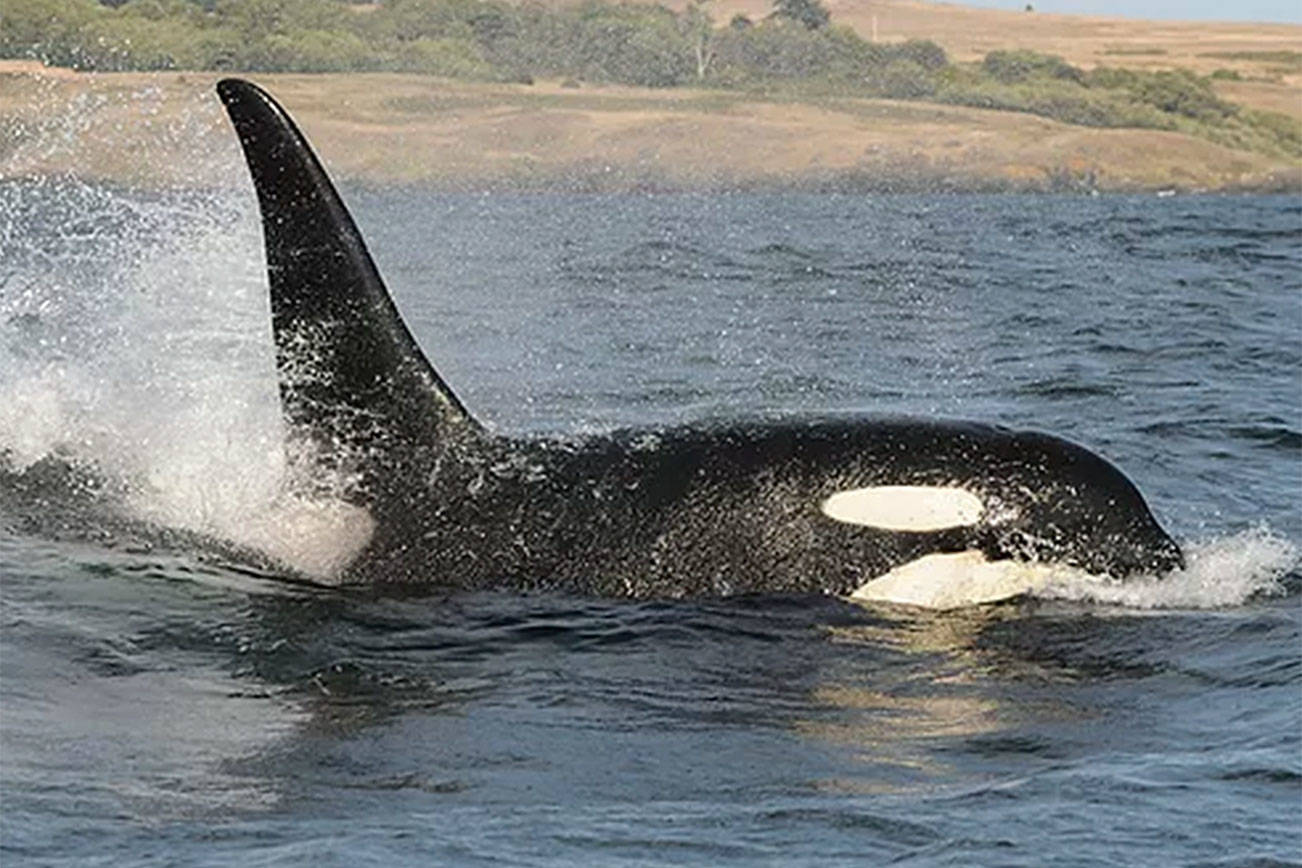The orcas who call the waters surrounding the San Juan Islands home for part of the year have reached a population low, not seen in roughly three decades.
According to reports from the Center for Whale Research, a 23-year-old adult male orca known as L92 is missing and presumed dead, leaving the Southern resident killer whale population down to 75. L92 has not been seen by the center’s staff since November 2017.
The Southern resident killer whales are comprised of three pods, or groups they live in, which are J, K and L.
The Center for Whale Research has been counting the population since 1976 when it was at its lowest at 71. The population reached near today’s count at 74 around 1985 but peaked at 98 in 1995.
According to the Center for Whale Research, Southern resident killer whales have visited the inland local waters less in the last few years than in previous seasons. This, states the center’s website, parallels the decline in Chinook salmon spring runs from the Fraser River.
The downturn in Chinook salmon from the Fraser River adds to what has been classified as one of the population’s three biggest threats: a lack of prey. The other threats are toxins in the water and disturbance from vessel traffic and noise.
Fraser River Chinook salmon are a large part of the orcas’ diet, according to the Center for Whale Research. One study from 2004-08, showed that up to 90 percent of the Chinook salmon consumed by the Southern residents, locally, originated from the Fraser River.
The Center for Whale Research website also states that of the “wild Chinook salmon populations associated with Puget Sound rivers, 16 are classified as extinct and the remaining 22 populations are listed as threatened.”
In early May, Washington Department Fish and Wildlife staff recommended all vessels avoid an area along the west side of San Juan Island to protect the endangered local orcas who are facing a shortage of prey and are known to feed in that location.
Last March, Washington state Gov. Jay Inslee also used an executive order to create a task force to protect both Chinook salmon and Southern resident killer whales.
County residents, including Center for Whale Research Founder Ken Balcomb, San Juan County Councilman Jamie Stephens and Washington state Sen. Kevin Ranker, D-Orcas Island, are part of the 46-member task force. The group will give final recommendations on how to protect the endangered orcas to the governor by November.
San Juan County staff are also implementing new tactics to protect the orcas, including offering whale warning flags, which are also used in Canada, by this July, to raise both on land and in boats when whales are nearby as an extra precaution.
For more information on the Center for Whale Research, visit www.whaleresearch.com.




